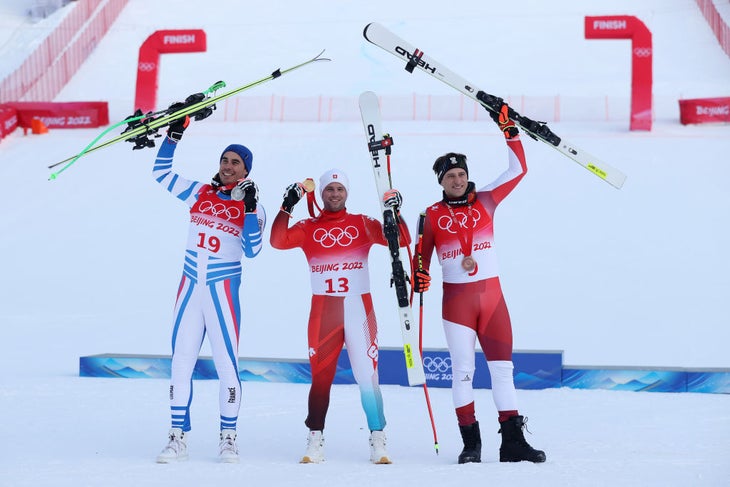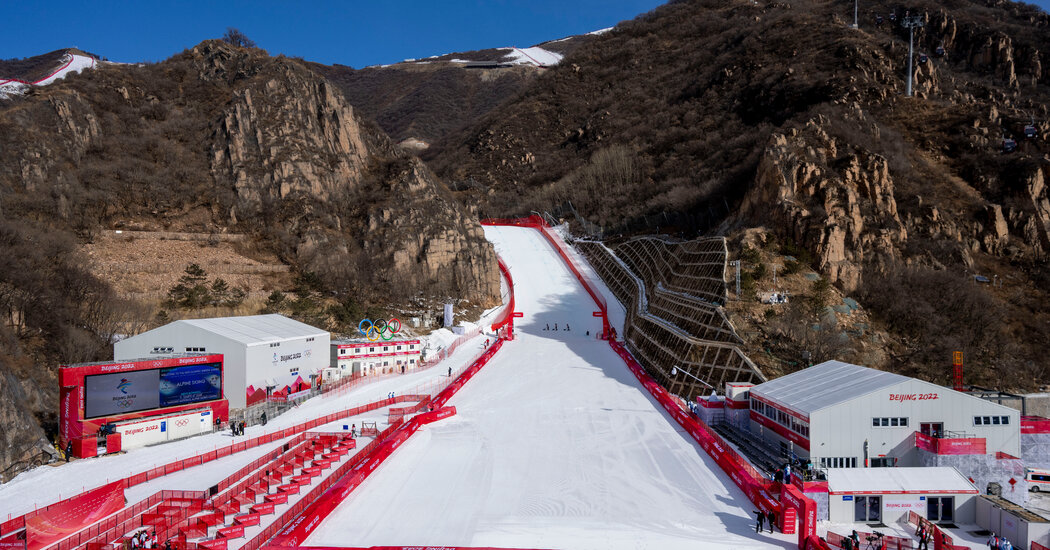
Forty control gates, two training runs, nearly a kilometer of vertical descent (2933ft), no test event, and a postponed race day. This was the story of the buildup to the first Alpine Skiing event of the 2022 Olympic Winter Games in Beijing, China. The Men’s Downhill is one of the most popular events in the Winter Olympics, and this year’s rendition kicked off the Olympic competitions on February 7th. Despite the slight doubts that shadowed over the snow conditions and course safety, the speed slope, nestled 90 minutes outside of Beijing, provided an excellent Downhill environment that received high praise from all the athletes after the first training session.
Kicking off on February 3rd and 4th, the training runs provided an excellent appetizer for the Downhill athletes and fans alike. A showcase of exciting rare names and regular podium sitters had viewers on the edge of their seats, even without medals on the line. A section named ‘Saddle Jump’ quickly presented itself as a challenging and essential part of the downhill track, with several athletes missing control gates on a difficult left-footed curve immediately following the technical feature. 27-year-old Swiss Skier Stefan Rogentin found himself in the top spot, eight-hundredths of a second ahead of Adur Etxezarreta of Spain. North American skiers also showed pace, with Canada’s James ‘Jack’ Crawford sitting in fourth and California’s Bryce Bennett in 13th, leading the US contingency.
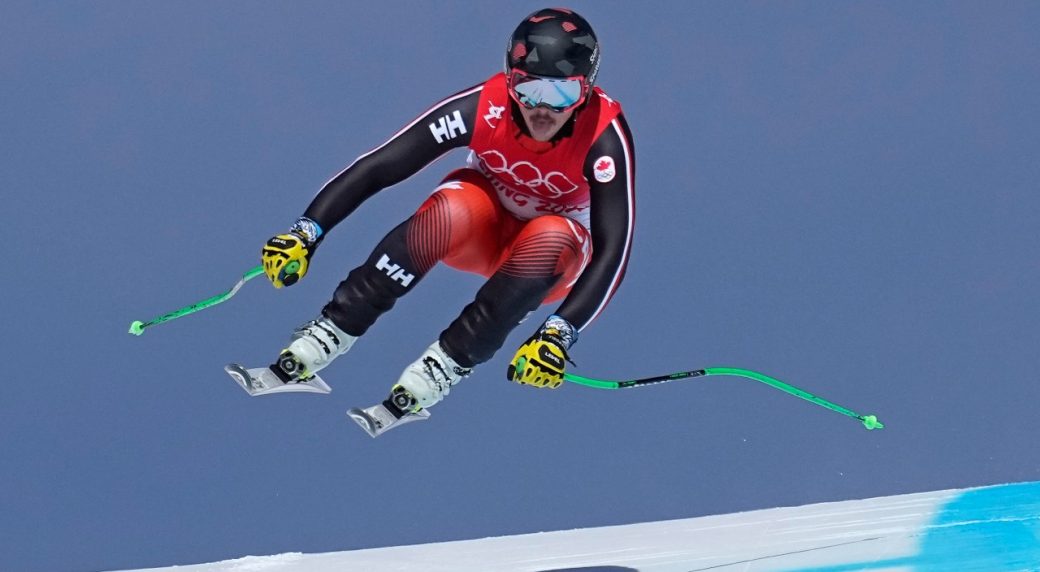
After delays of a couple of hours due to extremely high winds, the original race program on February 6th was canceled, and the race would be pushed to the following day. The World Cup royalty wasted no time getting to business on the ‘Rock’ course, with Austrian Vincent Kriechmayr kicking out of the start gate first. Kriechmayr came in as the reigning Downhill World Champion, a title he achieved in Cortina d’Ampezzo in 2021. The Austrian rocketed down the track and seemingly nailed both the straighter, gliding sections as well as the tighter, technical section. His time of 1:43:45 was faster than any of the times in the first training and would stand the test of a handful of athletes.
The’ Rock’ course didn’t take long to claim its first DNF. 30-year-old Dominik Schwaiger from Germany was the second athlete to tackle the nearly two-mile course. The Olympic debutant and 2021 German National champion was behind Kriechmayr’s pace throughout the whole track, suffering from slight but cumulative mistakes through his racing line. Schwaiger’s race ended prematurely, as the German lost control around a high-pressure left-footed curve and found himself flying towards the net. An awkward impact with the edge of the safety netting caused Schwaiger to spin, and he was taken off the course by the ski patrol in a toboggan. According to the German Ski Team Facebook page, Schwaiger was relatively unharmed but will miss the upcoming Super-G race. Five other athletes would fail to finish the Olympic course, including Canada’s Broderick Thompson, Italy’s Christof Innerhofer, and China’s Zhang Yangming.
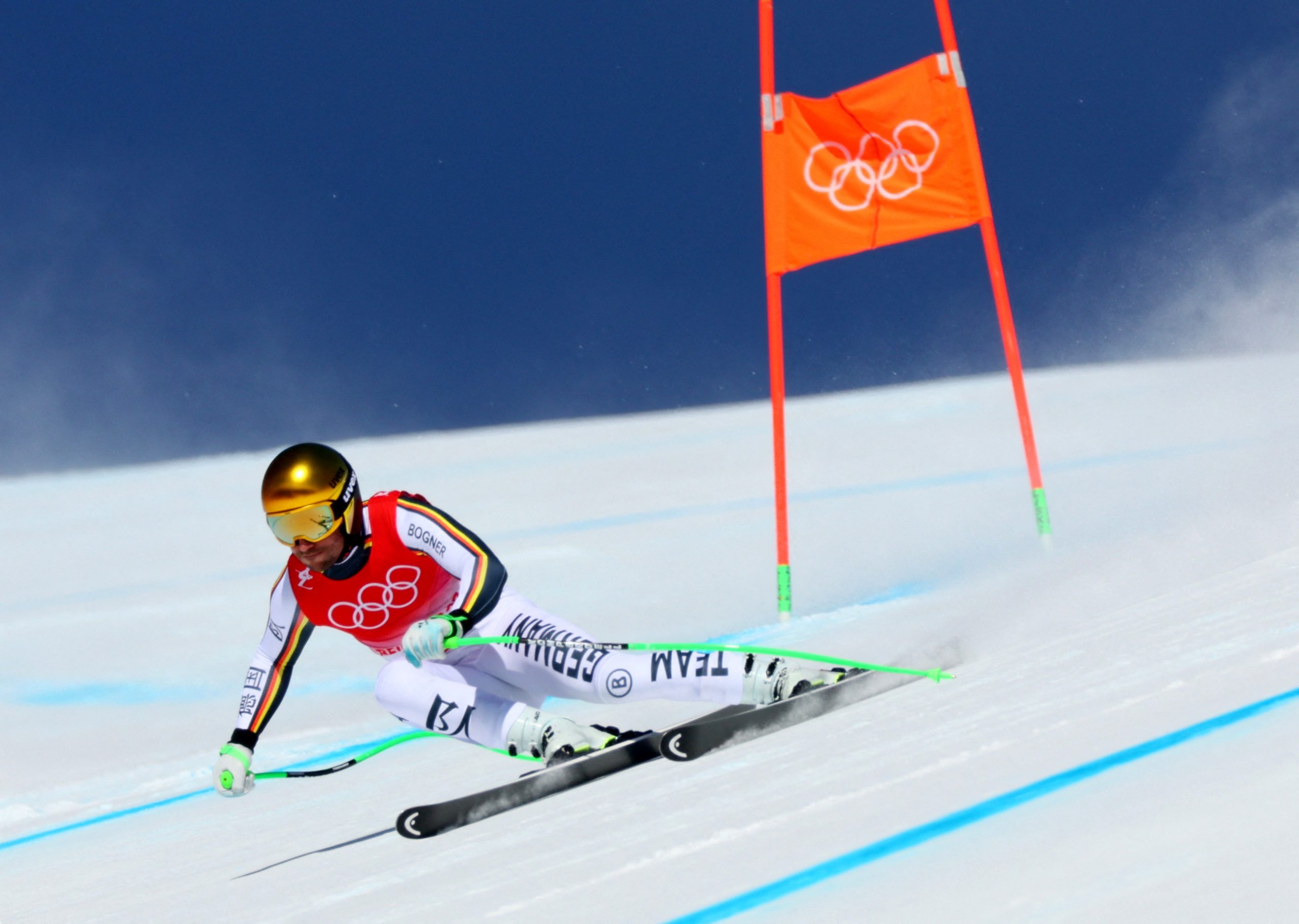
Matthias Mayer was the only compatriot to beat Kriechmayr’s time and hoped to add another Olympic gold to his shelf. The Austrian, who won the season-opening downhill World Cup in Lake Louise, Canada, won the Downhill eight years ago in Sochi, Russia, and the Super-G in PyeongChang, Korea, in 2014. This year the 31-year-old would have to settle for third, despite an impeccable come back from being behind Kriechmayr in the first couple of intervals.
Beijing 2022 brought a third Olympic appearance for Swiss superstar Beat Fuez. With an extensive 16 year career at the highest level of skiing, Fuez brings 57 World Cup podiums, the title of 2017 World Champion, and 18 World Cup victories. The Chinese course would prove to suit Fuez, who tends to excel on the faster Downhill courses. Starting 13th, the 34-year-old quickly established a commanding advantage on then-leader Matthias Mayer. Fuez’ skied aggressively and cleanly, executing impeccable skills through a near-perfect line down the track. While Fuez came close to the wrong side of the clock in the middle section, the 2022 Kitzbuhel champion gained time on Mayer through the final, flatter section and would claim his spot in the leaders’ box. 30 more athletes would attempt to dethrone the Swiss king, but none would succeed and Beat Fuez earned the missing puzzle piece that completed the impeccable career that he has enjoyed.
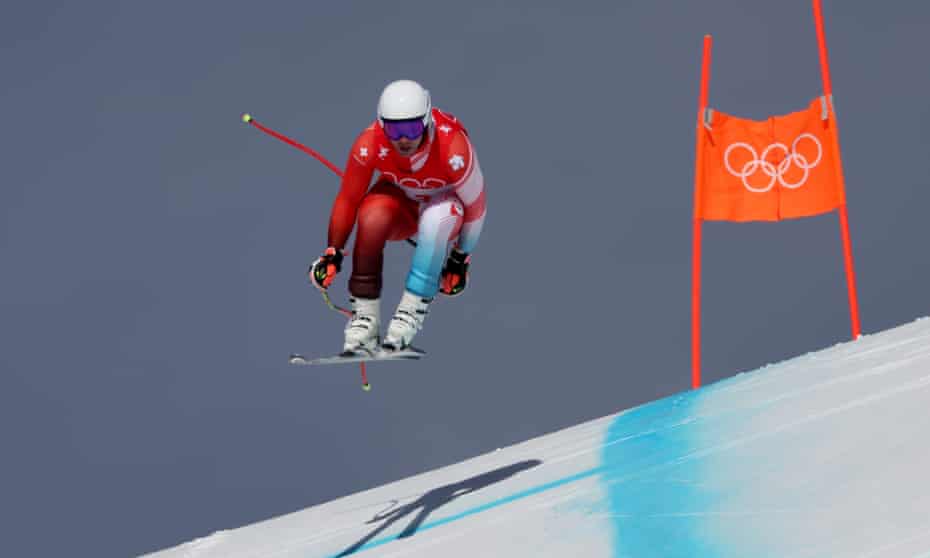
Johan Clarey from France would come the closest to Fuez. Clarey made his World Cup debut in 2003, and Beijing would be his fourth Olympic appearance. The 2019 Vice-World Champion, who also joined Beat Fuez on the podium in Kitzbuhel, stormed to the finish line to split the difference between Fuez and Mayer. Clarey ended the day with a silver medal and, at 41 years old, became the oldest athlete to win an Olympic medal in Alpine Skiing.
Other results included Canada’s Jack Crawford, who claimed ‘best of the rest’ and finished fourth, just seven hundredths off the podium. Vermont’s Ryan Cochran-Siegle led the US Ski Team, finishing in 14th. Speed favorites such as Norway’s Aleksander Aamodt Kilde, Italy’s Dominik Paris, and Switzerland’s Marco Odermatt also found themselves in the top 10.
The Men’s Olympic program moves to Super-G racing on February 8th, followed by the Combined event on the 10th.
Full results and schedule can be found at fis-ski.com
